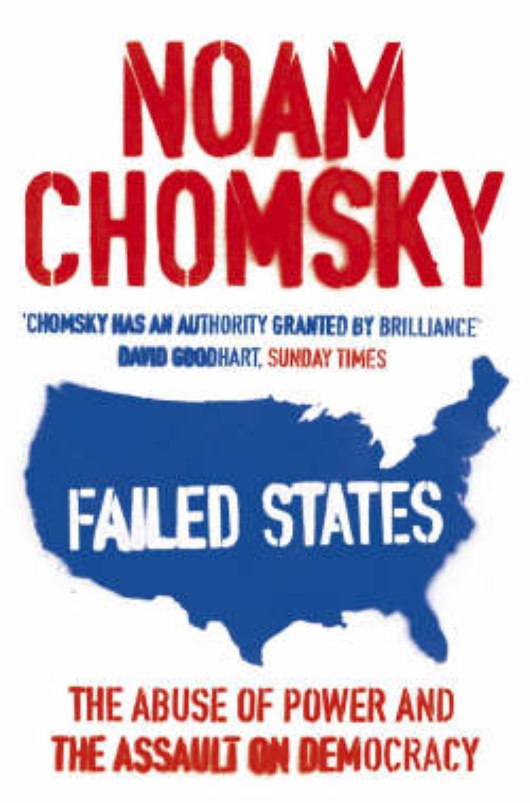Balkans and Failed States Index
Published on
Different aspects of freedom, wider human rights and civil liberties, democracy, economical, social and other kind of development are hard to implement if the state is failing or already failed. If an outstanding problem occurs, such as food crisis or a devastating hurricane, the world’s weakest states are the most exposed when crisis strikes.
In the Failed States Index, FOREIGN POLICY and The Fund for Peace rank the countries where state collapse may be just one disaster away.
 Founded in 1970 and now published by the Slate Group, a division of Washingtonpost.Newsweek Interactive, LLC, in Washington, D.C., FOREIGN POLICY is the premier, award-winning magazine of global politics, economics, and ideas. Their challenging “mission is to explain how the world works—in particular, how the process of globalization is reshaping nations, institutions, cultures, and, more fundamentally, our daily lives.”
Founded in 1970 and now published by the Slate Group, a division of Washingtonpost.Newsweek Interactive, LLC, in Washington, D.C., FOREIGN POLICY is the premier, award-winning magazine of global politics, economics, and ideas. Their challenging “mission is to explain how the world works—in particular, how the process of globalization is reshaping nations, institutions, cultures, and, more fundamentally, our daily lives.”
Failing State?
Failing state is defined by authors of index as follows:
A state that is failing has several attributes. One of the most common is the loss of physical control of its territory or a monopoly on the legitimate use of force. Other attributes of state failure include the erosion of legitimate authority to make collective decisions, an inability to provide reasonable public services, and the inability to interact with other states as a full member of the international community.
The 12 indicators (used in Index/AR) cover a wide range of elements of the risk of state failure, such as extensive corruption and criminal behaviour, inability to collect taxes or otherwise draw on citizen support, large-scale involuntary dislocation of the population, sharp economic decline, group-based inequality, institutionalized persecution or discrimination, severe demographic pressures, brain drain, and environmental decay. States can fail at varying rates through explosion, implosion, erosion, or invasion over different time periods.
The twelve Indicators
The rank order of the states is based on the total scores of the 12 indicators. For each indicator, the ratings are placed on a scale of 0 to 10, with 0 being the lowest intensity (most stable) and 10 being the highest intensity (least stable). The total score is the sum of the 12 indicators and is on a scale of 0–120. Countries that have scores lower than 30 are categorized as Most Stable, countries that have scores more than 90 are considered as Critical, the scores between them indicates that a state is In Danger, Borderline or Stable.
The 12 indicators are divided into three groups and are following:
Social Indicators: 1. Mounting Demographic Pressures 2. Massive Movement of Refugees or Internally Displaced Persons creating Complex Humanitarian Emergencies 3. Legacy of Vengeance-Seeking Group Grievance or Group Paranoia 4. Chronic and Sustained Human Flight
Economic Indicators: 5. Uneven Economic Development along Group Lines 6. Sharp and/or Severe Economic Decline
Political Indicators:
7. Criminalization and/or Delegitimization of the State
8. Progressive Deterioration of Public Services
9. Suspension or Arbitrary Application of the Rule of Law and Widespread Violation of Human Rights
10. Security Apparatus Operates as a "State Within a State"
11. Rise of Factionalized Elites
12. Intervention of Other States or External Political Actors
 The numbers above are correlating with columns in Failing State Index table below.
The numbers above are correlating with columns in Failing State Index table below.
The Index
From original Failed State Index (more in original story ) I have selected following countries to my modified table:
Balkan states Top 3 and Worst 3 in the world U.S. as old superpower BRIC countries as rising superpowersAn finally here is the Index: ''FailedStateIndex''/mod.AriRusila
Final notice
This article - and statistics behind it - and my earlier article “Freedom in Balkans” are complementary to each other - same problems are viewed from different perspectives. However in general all rankings which I have quoted are representing more or less anglo-american point of view - its values and research methods. If rankings were made e.g. by some byzantine institute the results could be differ - the viewpoint and tradition for example regarding democracy are not one to one with western views. If these limitations are noted so I anyway think that discussion about findings in different countries could be valuable material for further development.



